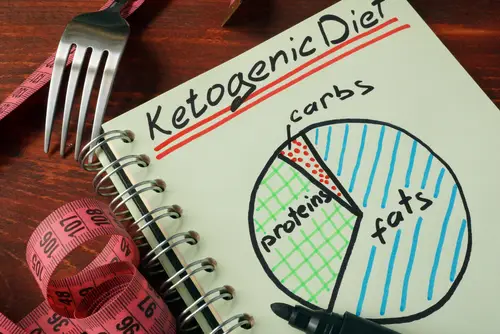Understanding the Ketogenic Diet: Myths, Benefits, and Evidence-Based Insights
The ketogenic (keto) diet is a low-carbohydrate, high-fat diet that has gained popularity over the years for various reasons.
I came across a helpful article titled “The 5 Common Myths that Stop People from Trying the Keto Diet” that I wanted to share. The piece dives into the misconceptions of keto diets and aims to dispel them and shed light on the potential benefits.
The article stresses the importance of research; many form opinions based on rumors, not facts.
The author suggests that individuals could reap significant benefits from the keto diet with a clearer understanding. The article is definitely worth checking out. You can access and download the entire article here.
What are the potential benefits of keto diets?
Here are some scientifically supported benefits of the keto diet that might encourage you to consider this dietary approach:
- Weight Loss: One primary motivation for adopting the keto diet is weight loss. By significantly reducing carbohydrate intake and increasing fat consumption, the body enters a state known as ketosis, where it burns stored fat for energy.
- Improved Blood Sugar Control: The ketogenic diet may offer advantages for individuals with type 2 diabetes or insulin resistance. Research indicates that a keto diet can help stabilize blood sugar levels.
A study published in the American Journal of Clinical Nutrition found that low-carbohydrate diets can lead to significant weight loss and improvements in insulin sensitivity. Reducing carbohydrate intake lowers insulin levels, which can help stabilize blood sugar (American Journal of Clinical Nutrition, 2016). - Increased Energy and Mental Clarity: Some individuals report increased energy levels and improved mental clarity when following the keto diet. Researchers say stable blood sugar levels and efficient brain energy through ketones may be linked.
- Appetite Suppression: The diet’s high fat and moderate protein content may help control appetite, leading to reduced calorie intake and, consequently, weight loss.
- Improved Triglyceride and HDL Cholesterol Levels: Keto dieting improves lipid profiles by lowering triglyceride levels and raising HDL cholesterol, which benefits heart health.
- Potential for Epilepsy Management: The ketogenic diet has been a therapeutic approach for children with epilepsy for decades, particularly for those who do not respond well to medication.
- Inflammation Reduction: Some studies suggest that the keto diet may have anti-inflammatory effects, benefiting individuals dealing with inflammatory conditions.
- Improved Skin Conditions: Some individuals with skin conditions, such as acne, have seen improvements while following a ketogenic diet. However, more research is needed in this area.
- Enhanced Endurance Performance: In some cases, athletes and fitness enthusiasts on the keto diet report improvements in endurance and exercise performance once their bodies adapt to using ketones as a primary fuel source.
- Metabolic Flexibility: The keto diet enhances metabolic flexibility, benefiting overall health.
Keto diets may benefit some individuals but may not be suitable for everyone. It’s essential for individuals, especially those with diabetes, to consult with healthcare providers before making dietary changes.











